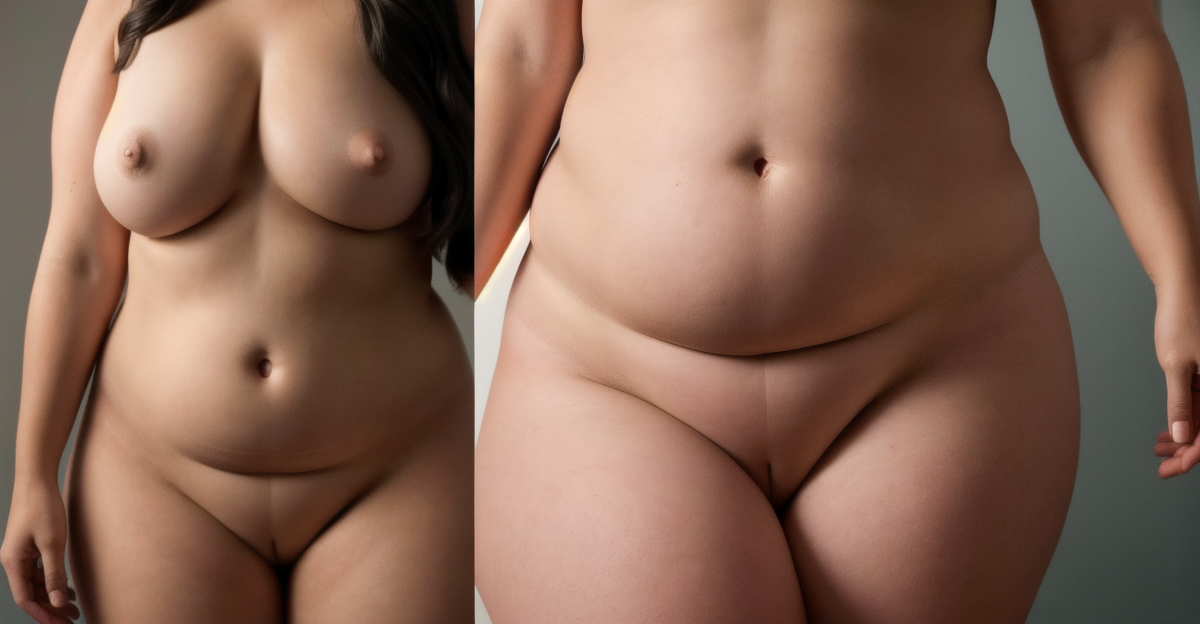
The internet promised connection, but often delivers a highlight reel of seemingly flawless lives. We’re constantly exposed to “perfect” bodies, frequently presented under the banner of body positivity. But is this truly empowering, or just another unattainable ideal? Let’s unpack this complex issue. ## The Evolution (and Potential Corruption) of Body Positivity The body positivity movement began as a powerful act of self-acceptance, a rebellion against restrictive beauty standards. It was about celebrating *all* bodies – every size, shape, skin tone, and ability. It aimed to challenge the diet industry and dismantle harmful societal pressures. But somewhere along the line, the movement became… marketable. Influencers and brands hopped on the bandwagon, frequently using body-positive language to sell products or promote a *slightly* more inclusive, yet still meticulously curated, image. Algorithms, designed to maximize engagement, often prioritize images that align with specific aesthetic preferences, even within the “body positive” space. While the initial intention might be there, the overall impact can be watered down. ## The Illusion of Imperfection: Filters, Angles, and Editing Have you ever used a filter? Be honest! Most of us have. But the sheer pervasiveness of photo and video editing tools is fundamentally altering our perception of reality. Apps can smooth skin, reshape bodies, and even add or remove features with just a few taps. Strategic posing and lighting further contribute to this illusion. What appears to be a “natural” photo often involves hours of preparation, numerous takes, and professional retouching. According to a 2019 Dove study, 80% of women compare themselves to images they see online. The problem? These images are often a far cry from reality. ★ **Remember: What you see online is rarely the whole truth.** ## The Psychological Impact: Comparison, Anxiety, and Self-Esteem Constant exposure to these idealized images can significantly impact our mental well-being. Social comparison theory suggests that we naturally compare ourselves to others, especially those we perceive as “better” than us. When these comparisons are based on unrealistic standards, it can lead to body image dissatisfaction, anxiety, and diminished self-esteem. “Comparison is the thief of joy,” as Theodore Roosevelt famously said. And social media makes it incredibly easy to fall into this trap. Studies have shown a direct link between social media use and increased rates of depression and anxiety, particularly among young women. The good news? Awareness is the first step towards positive change. ## Beyond the Screen: Fostering Authentic Self-Acceptance So, how do we break free from this cycle of comparison and cultivate genuine self-love? It starts with shifting our focus inward. Practice mindfulness: pay attention to your thoughts and feelings without judgment. Cultivate self-compassion: treat yourself with the same kindness and understanding you would offer a dear friend. Prioritize your physical and mental well-being. Nourish your body with wholesome foods, engage in activities you genuinely enjoy, and dedicate time to self-care. ★ **Actionable Tip: Unfollow accounts that trigger negative feelings and curate your feed with content that promotes positivity and authenticity.** Learn more about mindfulness techniques here. ## Responsible Representation: Supporting Authenticity Online We can also make a difference by actively supporting influencers and accounts that promote genuine body positivity and diversity. Seek out creators who are transparent about their use of filters and editing, and who celebrate bodies of all shapes, sizes, and abilities. Encourage critical thinking and media literacy skills. Teach yourself and others to question the images you see online and to recognize the techniques used to create a “perfect” image. ★ **Key takeaway: Be a conscious consumer of social media.** By being mindful of the content we consume and the messages we amplify, we can help foster a more inclusive and authentic online environment. What steps can YOU take to curate a more positive online experience? Share your thoughts! What do YOU think?
Source:Which Instax Camera Should You Buy?
Find more cool content on TikTok! https://www.tiktok.com/@theviralheartbeat



